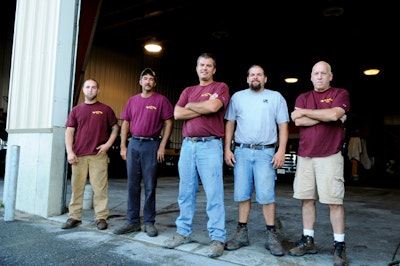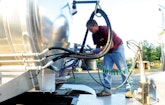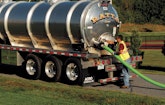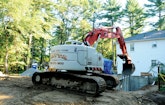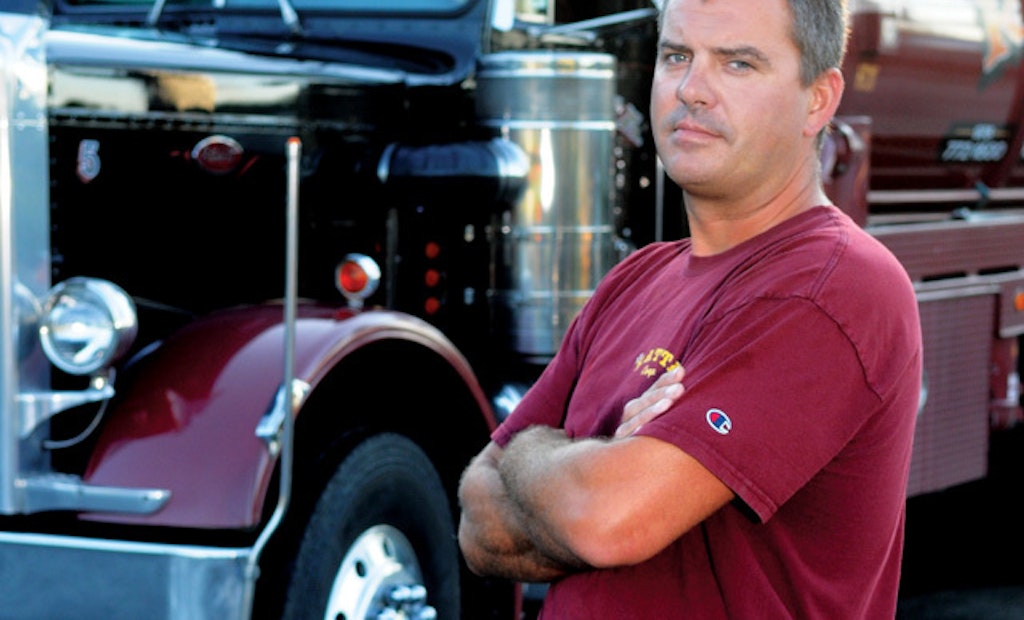
Interested in Trucks?
Get Trucks articles, news and videos right in your inbox! Sign up now.
Trucks + Get AlertsAs a third-generation pumper, Rob Ratta is as old-school as they come. But the owner of R.M. Ratta Corp. in Ayer, Mass., also embraces new, unconventional strategies – such as hiring a business-consulting firm and an in-house sales rep – to increase business volume, break into new markets and boost profitability.
“I always try to look ahead of where I am at the moment,” Ratta says. “And I like thinking outside the box. I got that from my old man, no doubt about it.
“I knew there was room for improving the business – there’s always room for improvement,” he continues. “So I figured I had nothing to lose by giving it (the consultant) a shot and finding out what we can do better … and take things to the next level.”
Ratta estimates he paid New Gainsborough Associates of Boston about $46,000 over the last three years to have the management consulting firm “take the company apart” and figure out its strengths and weaknesses – and how to help it grow. The process included examining every aspect of the company’s operations, with an emphasis on pinning down exact operating expenses and overhead.
“You can’t make a buck if you don’t know what it costs to open the door, turn the lights on and send out trucks every day,” he notes.
The consulting cost about $1,500 a day, and started soon after Ratta fielded a telemarketing cold call from the company. From a time standpoint, the consulting was front-loaded, consuming a lot of time during the first six months, then tapering off after that.
“It was the best thing we ever did,” Ratta says. “It was worth every penny because it’s paid for itself.”
The proof is in the numbers: Ratta estimates the company’s revenue increased 60 percent as a result of the consulting firm’s advice.
ADDING SALES POSITION
Ratta says the review of his company’s business practices didn’t reveal anything drastically wrong. But high overhead costs – a good portion of it stemming from a $1 million investment in a new, 12,000-square-foot shop building with five service bays – required a significant increase in sales volume.
The answer? Hire an internal sales representative to dig up new clients.
“So we hired someone to go after commercial septic pumping,” Ratta explains. “Residential business alone was not enough to feed the monster.
“We have a lot of competition … and commercial pumping fills in a lot of the gaps,” he adds. “Around here, you get seven or eight months of good weather, then residential business goes right down the toilet and doesn’t come back until around the end of March. So our mission became making more of commercial opportunities than we ever did before. It’s mind-boggling how much is out there.”
Ratta attributes some of the sales increase to attracting new clients and some to renewing relationships with old customers lost through things such as price-cutting by competitors. Whatever the case, having sales rep Mark McKenna aboard allows Ratta to focus on what he does best, while leaving sales – which he admits is not his strong suit – to a specialist.
“I’m not a salesperson – I hate it,” Ratta says. “I’m not an office person. Once the door is open, I can walk in and take it from there. But getting the door open is just not my forte.”
SERVICE PLANS
Sometimes Ratta attracts new customers by offering better prices than competitors. But for the most part, it’s a matter of explaining that Ratta Corp. is a third-generation, family-owned business that offers great customer service.
“Mark will ask them (potential customers) if they’re happy with their current service,” Ratta says. “He’s relentless. He doesn’t give up, even if it appears that they don’t have any interest in us. Because all of a sudden, if they have a problem, or someone they’re using makes them mad, they’ll call us.”
After a few visits to a new customer, Ratta designs an individual service plan designed to save problems over the long term. This boosts efficiency and often saves the commercial customer money.
“Most times, they also need some repair work,’’ Ratta says. “We put together a package, get them on a time frame and all of a sudden life is good for them.
“They get an email the day before we come out, and they get one at the end of the day of service,” he says. “We’re in constant communication with them. It’s working … it all comes down to giving people what they deserve and what they’re paying for.”
THE BIGGER THE BETTER
To maximize productivity and reduce operating costs, which helps the company maintain competitive pricing, Ratta relies on a well-maintained fleet of equipment. He strongly believes in vacuum trucks with large-capacity tanks (the smallest vacuum tank is 4,000 gallons), a preference he picked up from his father, Jim.
“Back in 1973, it was unheard of to have a truck that big. He’s still running that truck to this day,’’ Ratta says of his father. “I can’t justify running anything smaller because it just doesn’t make any sense. When you can make three or four calls in a row and then go dump, it’s more cost effective than a smaller truck, where you have to go dump after two cleanings.”
The company owns a 1979 International 2674 with a 4,000-gallon steel tank, built by Industrial & Municipal Engineering Inc.; a 1986 Peterbilt 359 with a 4,000-gallon steel tank, built by Keith Huber Inc.; a 2004 Peterbilt 379 with a 4,500-gallon steel tank, built by Andert Inc.; a 1997 Kenworth W900L tractor with a 9,000-gallon aluminum vacuum trailer manufactured by Acro Trailer Co.; three 8,500-gallon aluminum transport tankers, two made by Fruehauf and one by Trailmobile (a brand owned by Manac Inc.); and 2005 Ford F-350 and 2006 Ford F-450 service trucks.
In addition, the company relies on a Ratech Electronics pipeline inspection camera system; a 2005 Link-Belt 225 excavator, made by LBX Company LLC; a 2010 John Deere 50 mini-excavator; a 2001 John Deere 444H wheel-loader; a 2005 John Deere 410G rubber-tire backhoe; a 2006 Caterpillar 277B skid-steer; a 2004 John Deere 110 rubber-tire utility backhoe; a 2000 40-ton trailer manufactured by the Fontaine Trailer Co.; a 26-foot dump trailer manufactured by Summit Trailer Sales Inc.; and a 1986 Peterbilt 359 dump truck.
The pride of the fleet is a 1979 Ford F-350 flatbed service truck that Ratta says he drives only when there’s sunshine and clean roads.
FAMILY OF PUMPERS
Ratta says he has been in the septic-pumping field “since I was born.” His grandfather, Fred Ratta, owned a pumping business, and Ratta worked for his father before branching off on his own in 1996.
“Working in a family business can be tough at times,” he says of his departure. “I just needed to spread my wings a little more.”
Ratta started out with a truck and a dump trailer, hauling things such as dirt and equipment for other contractors, including his father. In July 2003, he took over the septic-pumping portion of his father’s business.
“We’ve been growing it ever since then,” he says. The keys to his success? “Long days and a lot of hard work, seven days a week. In the beginning, most of our business came from word-of-mouth. We had good name recognition in the area because of my grandfather and father.”
Offering a diverse array of services also helps. Ratta’s company also does water, sewer and septic-system installations, which account for between 25 and 30 percent of the company’s business volume, and also cleans grease traps and performs other service work. Overall, Ratta estimates that residential work accounts for 60 to 75 percent of the company’s pumping business, with the rest coming from servicing commercial accounts, such as condominium complexes and restaurants.
“Diversity is imperative to keep the business rolling … especially with our main business being so seasonal,” he notes. “The type of stuff we do is difficult to do when there’s two or three feet of frost. So we do a half dozen different things, from home septic-system inspections and small septic repair work to commercial pumping and transport equipment … whatever it takes to survive.”
JOB DONE RIGHT
In the end, though, hiring a business consultant or hiring a sales rep doesn’t matter one iota if the company fails to treat customers fairly and honestly. And from Ratta’s perspective, doing so doesn’t require anything all that complicated, either.
“The most important thing you can do for any customer is treat them the way they want to be treated,” he says. “If you tell a customer you’ll be at their place at a particular time and tell them what you’re going to do, you show up and do what you said you were going to do, and do it right. It’s a lot easier to do a job right than it is to do it wrong.”
